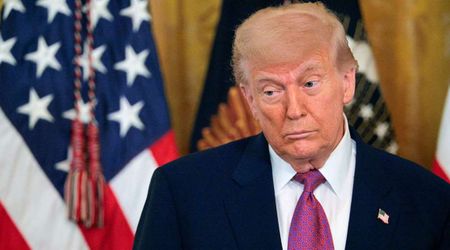Who Owns AI-Generated Content? Understanding Ownership and Copyright in the Wake of Generative AI Boom

The rise of generative AI has sparked debates and legal challenges surrounding the ownership and copyright of AI-generated content. The question of who owns the intellectual property when AI is used to create something has become a complex issue due to uncertainties related to human involvement and training data sources.
AI-generated art and copyright issues
The controversy surrounding AI-generated art came into the spotlight when an AI-generated work won an art competition. The artwork was generated by a generative AI image tool called Midjourney, following prompts from artist Jason Allen, per Euronews Next. While some praised the creativity involved in generating the right prompts for the AI, others expressed fear that AI could replace human creativity in the art field. Additionally, the win raised questions about copyright ownership as the AI tool played a significant role in creating the final artwork.

Legal action and copyright infringement
Some creators and companies believe their content has been stolen by generative AI companies and are now filing lawsuits against them. Getty Images (an American visual media company and supplier of stock images, editorial photography, video, and music for businesses and consumers) is suing Stability AI (the company behind Stable Diffusion) for copying and processing millions of images that are protected by copyright without getting permission or providing compensation, per Built In. Voice actress Bev Standing claimed that TikTok used her voice without permission for its text-to-speech feature and filed a lawsuit against the company. Artists like Sarah Anderson, Kelly McKernan and Karla Ortiz have filed a class-action copyright infringement lawsuit against both Stability AI and Midjourney, claiming that these companies have used their images to train their AI models. Author and comedian Sarah Silverman along with two other authors are pressing similar charges against OpenAI and Meta.

Who owns the copyright to AI-generated content?
Copyrighting AI-generated content presents various challenges due to the novelty of the technology and its unique characteristics. A recent study explained that existing laws are often applied to new technologies based on court cases and the same is expected for AI-generated content. The history of photography provides a potential guide on how copyright laws might evolve as photographers eventually gain ownership rights over their creations, leading to the establishment of photography as a recognized artform.

EU copyright rules for AI-generated content
The EU has been playing catch-up in terms of regulating AI use and specific laws for copyrighting AI-generated content are yet to be established. However, the AI Act passed by the European Parliament addresses the need for companies deploying AI-generated content to disclose any copyrighted material used in their systems. This is a step in the right direction as copyright challenges often arise due to the possibility of copyrighted material being used to train AI models.
Challenges to copyrighting AI-generated content
Several challenges make it difficult to copyright AI-generated content. One of the primary issues is the ambiguity surrounding human involvement and intentions in the creative process. Additionally, the training data used to develop AI models often includes copyrighted works without the creators' knowledge or consent. This raises questions about whether the resulting AI-generated content constitutes fair use or requires compensation for the original artists.

Determining ownership and joint copyrights
Tracing the copyrighted content used in generating specific AI outputs is complicated and hence, the numerous lawsuits against AI image generators. Moreover, determining the extent of human involvement required for ownership of AI-generated content remains challenging. As copyright laws aim to protect artists and encourage creativity, lawmakers may need to consider joint ownership in cases where AI-generated content resembles existing works closely.























